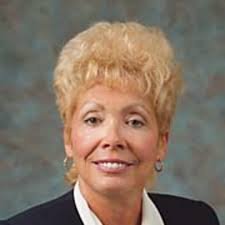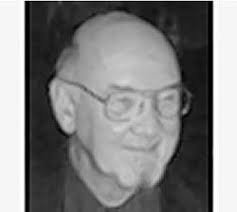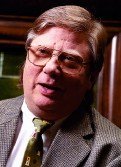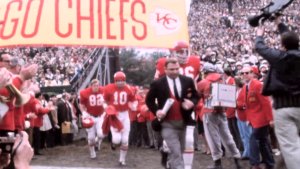1970’s debate tournaments. Continue reading
In my last undergraduate semester at U-M I planned to spend a LOT of time on debate. This was my last chance to qualify for the National Debate Tournament, and I intended to make the most of it. This post has details about a few debates. If you need a primer on intercollegiate debate in 1966-1970, you can find it here.
I must describe our coaching staff in 1969-70. Bill Colburn was the Director of Forensics, but he no longer worked with the debaters or took trips. The Debate Director was Juddi (pronounced like Judy) Tappan, who was finishing her PhD. We had two excellent graduate assistants, Roger Conner, Mark Arnold’s partner in 1968-69 at Oberlin, and Cheryn Heinen, who had been a very good debater at Butler. Roger and Cheryn could probably have been a big help, but they were seldom allowed to go to big tournaments, and neither planned a career as a debate coach. Because the program had very few debaters, we hardly ever had practice rounds, and when we did, Juddi ran them. Cheryn did not work with us much.
Juddi’s major contribution was to insist that I reserve the last thirty seconds of my 2AR to summarize the case. She was big on style and polish. No one else did this in 1970; time was too precious. So, on the affirmative we always had less time to present and answer arguments than our opponents did.
We received valuable help from an extremely unexpected source. In my senior year Jimmie Trent was a professor in the speech department at Wayne State University. He had been a legendary debate coach at (of all places) Emporia, KS, and was universally credited with introducing the Plan-Advantages form of affirmative case, which by my time had almost completely replaced the traditional Need-Plan format.
Jimmie had a big impact on my thinking about the negative. I was almost always 1N, which meant that I attacked “the case,” the reasons for adopting the plan. One of my principal weapons was “inherency,” which challenged the affirmative team to prove that the “present system” was incapable of producing an equally desirable result. Jimmie argued that this was an unreasonable standard. In his (and eventually my) way of thinking, both teams must defend an approach. The negative’s approach could, of course, merely allow things to continue unchanged, but it could not keep changing its mind about what that entailed, i.e., “we could just …” I did not immediately change my tactics on the negative, but on the affirmative I always tried to pin down the other team.
On the negative Jimmie recommended that we try the Emory switch when we thought that we could get away with it. Previously I was 1N, and I attacked the case. The 2N attacked the plan, arguing that it would not achieve what the affirmative claimed and that it would cause severe problems. With the Emory switch the roles stayed the same, but my partner became 1N, and I became 2N. We attacked the plan first and then the case.
This had many advantages. More of the plan attacks were “canned,” which is to say that they were the same for many different plans and therefore written out in some detail. Having the extra time to prepare for attacking the case was more valuable than for attacking the plan. 2N got more time when he needed it most‐to rebuild his plan attacks after the affirmative had answered them.
Also, of course, it messed up the opponents’ strategy. Each of them was doing an unfamiliar task, and our approach also gave the 1AR only five minutes to rebuild their case and to deal with the defenses of the plan attacks. Finally, it let me give our last speech, and I was a little better at selling.
There is an obvious counter to the switch. The affirmative team can delay presenting its plan until the 2AC. One of Dartmouth’s teams tried this against us. However, the 1AC made no sense without the plan, and two or three minutes were still available when he finished. I had no trouble adapting. I just reverted to my old role as 1N, and the 2A, who had to present the plan in his constructive for the first time ever, had too little time to defend the case well.
A better approach, which we would have used if anyone had tried the switch against us, would be for the 2AC to present additional advantages of the plan after (or before) dealing with the plan attacks. Then, the 2AR can then drop some advantages and defend others.
We only lost one round all year when we switched. We met a pretty good team from Loyola of Baltimore at a tournament in Miami. They did not even try to defend their case in rebuttals. They only argued that our approach was unethical because it emphasized the “spread,” i.e., taking advantage of time limitations to present more arguments than the opponents could possibly answer. We had a very good set of answers to these arguments, but the judge voted against us on the ethics issue. The lesson we learned was to avoid the switch if the judge seemed too conservative. Loyola evidently knew the judge better than we did.
Our first trip in January of 1970 was the “East Coast Swing,” where we used the switch in every round except the one in which Dartmouth delayed presenting the plan. My partner, Bill Davey, and I were allowed to fly to Boston to participate in the tournaments at Boston College and Harvard. At BC we went 5-3 and narrowly missed qualifying for the elimination rounds. Because we did not have a long drive ahead of us, we decided to watch the octafinals. I watched Brown on the affirmative v. Southern Cal. Bill watched a different debate. One of the Brown debaters was visibly startled when he saw me enter the classroom and sit down. He nudged his partner and whispered something to him.
A few minutes later I found out why. Brown’s first affirmative constructive speech was word-for-word the same as ours! Evidently they had tape-recorded one of our rounds at some previous tournament and transcribed it. I have never heard of anyone—in the previous seven and a half years of debating or the subsequent six and a half years that I coached—doing anything like this. In disgust I stopped taking notes a few minutes into the speech.
Brown’s was a bad strategy. USC, which ran a similar case when they were on the affirmative, annihilated them. I was totally embarrassed that a team incompetently running our exact case qualified for the elims at this tournament, and we did not. I told Bill about it, but no one else.
In contrast, Harvard, which was the biggest tournament of the year, with over 100 teams in attendance, was our best tournament ever. In the prelims we were 7-1, losing only to Canisius on our affirmative. By the way we had an astoundingly good record on our negative all year. If we got to face Canisius in the elimination rounds, we would be “locked in” on our negative.
In the octafinals we faced an overmatched team from Boston College. We lost the coin flip (as usual; we only won one coin flip all year), and so we had to debate affirmative. It didn’t matter. All three judges voted for us.
The quarterfinal match against Oberlin was somewhat controversial. The Oberlin pair was Mark Arnold, whom I knew from our days in Kansas City, and freshman Paul Zarefsky, whose brother had been a champion debater at Northwestern, and he now coached there. We were affirmative again. The timekeeper was a debater on Canisius’s second team. We barely knew him, but he was friendly with our opponents.
The first two speeches delivered by Davey and Zarefsky were fairly routine. I was somewhere in the middle of my constructive when someone, I think it was Arnold, yelled out “Time.” The timekeeper was busy taking notes and had neglected to time my speech. He put up the 5 card, followed quickly by the 4. Arnold was sure that he gave me extra time. I thought that he cost me at least a little, and he certainly flustered me a little when 5 turned into 4 so fast.
Anyway, we won three of the five ballots. Oberlin had had a very good first semester, they had done well at BC, and Arnold was considered one of the best debaters in the country. He later coached at Harvard.
Our opponent in the semifinals was Georgetown, a perennial national powerhouse, represented by Dallas Perkins (who also later coached at Harvard) and Howard Beales. Once again we lost the coin flip. I thought that we debated pretty well, but all five judges, including Laurence Tribe, voted for Georgetown. I will always think that if we had won that coin flip, we would have won the tournament, but who knows?
Still, it was our best tournament ever, and I was the #5 speaker out of the 200+ who attended. Dartmouth also had a tournament, but we did not attend.
When I called Bill Colburn to pick us up at Metro Airport, I told him that we had dropped eight ballots at Harvard. He just said “Really?”, and I replied, “Yes, but the good news is that seven of them were in the quarters and semifinals.”
I remember riding home from a bitterly cold tournament on January 11. I was sitting shotgun and therefore had control of the radio. I found a CBS station, and we listened to the surprisingly calm voices of Bob Reynolds and Tom Hedrick. It was near the end of Super Bowl IV, and the Chiefs seemed to be running out the clock. The Vikings were thirteen-point favoritess, and so we all assumed that the Chiefs had just given up. Au contraire, mon frère! KC had pounded Minnesota 23-7. I knew that my dad and all my friends in KC would be ecstatic.
Juddi made all of the decisions about pairing and scheduling. Two of her decisions puzzled me. The first was to have me debate with sophomore Mike Hartmann at the most important tournament in the district at Northwestern. Mike was a really good debater, and Juddi must have wanted to give him some incentive for the next year. That’s fine, but we had never debated together, and he did not know our case. I would not have minded too much if it was another tournament, but Northwestern was perhaps the most important tournament of the year.
Mike and I won all of our negative rounds and two of the four affirmatives. One of the losses was to a good team. The other was to the worst team in the tournament from Northeastern Illinois University, which I had never heard of. Their record in the tournament was 1-7. The judge, whom I had never before seen, gave both Mike and me higher speaker points than either of the NEIU debaters (although considerably less than we received in any other round). However, he gave NEIU their only victory of the tournament. The text on the ballot was short and bitter: “I just can’t vote for this case.”
Sixteen teams qualified for the elims. We were seventeenth. You know what they say about horseshoes and hand grenades.
I think that 1970 was also the year that Bill and I flew to the tournament at the University of Miami. I remember that it was 70° warmer when we exited the plane than when we boarde. I also remember that right in the center of the campus was a huge swimming pool. The diving team was practicing when we were there. The centerpiece of the Michigan campus is the graduate library.
It was not a great tournament. My recollection is that the elimination rounds started at the quarterfinals, and we missed on speaker points. This was very annoying for a number of reasons. The first was that we lost a negative round on ethics, the only time that we lost when we switched and one of only a handful of negative losses all year.
The other annoying thing occurred against a weak team. The judge was a Miami debater who had graduated the year before. He came up to me before the round and told me that he knew the debate was a mismatch. He demonstrated a little sideways wave with his hand as he said something like “If I do this, cut it short. There’s no reason to prolong the agony.” I ended up cutting at least a minute or two off of my constructive, and I jettisoned the thirty-second summary in my rebuttal. We did win, but he gave us speaker points that were well below our average.
The third annoyance was that we had wasted time and money on this second-rate tournament. I don’t remember any more details about where we went and how we did.
Districts:I need to mention that Juddi and Jimmie tried for a while to keep their torrid relationship secret, but nearly everyone surely knew about it. At some point during the year they got married, and Jimmie tendered his resignation at Wayne State to become chairman of the speech department at Miami of Ohio. Juddi decided that she might be a political liability for us. She decided not to go to districts.
We had to supply two judges. Roger and Cheryn were chosen. This was fine with us, but it did not erase the last few months.
1970 was the first year that I seriously prepared for the district tournament. Roger worked with us quite a bit. We prepared by sprucing up our affirmative case to appeal to a more conservative audience and by working on how our arguments would work without the switch. We were too afraid of political consequences to pull the switch at districts. The only round that we had lost with the switch we had lost on ethics. We could certainly expect arguments like those in every round. Some judges might vote against us on general principles even if the negative did not make the arguments.
Some words of explanation about the District 5 qualifying tournament for the NDT are in order. The district was composed of four states‐Michigan, Ohio, Indiana, and Illinois. The national committee also invited seven additional pairs that did not qualify.
Northwestern was always a national power. Its coach, David Zarefsky, left his top team, Gunderson and Strange, at home because he was confident that they would receive an invitation to the NDT, and he was right. Northwestern sent its second team, Sitzma and Welch, to the district tournament. This was a break for us. We had beaten Sitzma and Welch all three times that we had met them during the year.
The district committee evaluated all the twenty-four teams in attendance. Six were rated A, six B, six C, and six D. Everyone debated two from each group.
Maybe we were not mentally in gear. Roger had tried to teach us to yodel, which he claimed was the best way to warm up. At any rate we lost the first round on our affirmative to a C team from Indiana State. Both Bill and I were just off. I thought that we had won, but I can understand why a judge could vote against us.
Then we met two pretty good teams—Hample and Sproule from Ohio State on our affirmative and Sitzma and Welch on our negative. We mopped the floor with both of them, and they knew it. It turned out that they were our two A teams. This kind of surprised me.
The next three rounds seemed uneventful. The seventh round was on Saturday evening. We faced an obnoxious guy named Greg Rigo from Ohio University on our negative. I don’t remember his partner’s name. They were a mediocre team with a very standard case. We debated fairly well and pretty much pounded them.
Two of the judges had familiar faces. The third one, who voted against us, was someone whom I had never seen. He came from one of the very weak schools. This sometimes happens, as it did to Mike and me at Northwestern.
One of the familiar judges voted for us and wrote that it was not close. The other judge, George Ziegelmueller, was the long-time Director of Forensics at Wayne State in Detroit. In my four years at U-M he had NEVER voted for any of our teams. His ballot in this debate was incomprehensible.
When I started debating in 1966, Wayne State was a highly ranked national power. The team of Kathy McDonald and Don Ritzenheim had narrowly lost in the final round of the NDT two years in a row. By 1970 they were just another mid-level team. I am not sure what happened to them, but it must have frustrated George.
Needless to say the Jimmie-Juddi business probably did not sit well with George. A faculty member at his school, who had probably never helped coach any of his debaters, was giving valuable tactical advice to a rival school! This just was not done.
I worked for George for three and a half years in the late seventies. I never brought this up, and neither did he. In those years I confirmed my impression that George was not considered a good judge. His note-taking was weak, and he tended to get fixated on one aspect of the debate, even if the debaters did not emphasize it.
The eighth and final round was on Sunday morning. Unbeknownst to us Juddi had shown up for the coaches’ cocktail party on Saturday night. I am sure that she pumped everyone with whom she was on speaking terms for information. Outside the room of our last debate she showed up with a huge grin on her face. She told us that we were doing very well, but we shouldn’t be too overconfident We had also heard a lot of buzz in the hallways that we had blasted everyone on our schedule.
At any rate in the last round we were on the affirmative against a so-so team from Illinois State. Both Bill and I were superb. We obliterated them. I had absolutely no doubt that we picked up all three ballots. In fact, one of the judges, David Angell from Albion College awarded me a perfect score of 30 and wrote on the ballot that it was the best performance that he had ever seen.
All the debaters, coaches, and hangers-on assembled for the announcement of the five qualifying pairs. Juddi was all excited when we told her that the last debate was by far our best.
Next came the assembly. Five teams would qualify for NDT. It took them at least half an hour to process the ballots. The district chairman finally came out and began, “There was one team that was 6-2 but …”
I swear the following is true: I screamed out “Oh no!” and buried my head in my arms on the desk in front of me. Everyone looked at me as he continued, “unfortunately had too few ballots to qualify. So, let’s have a hand for the University of Michigan, 6-2 with fourteen ballots.”
We lost ten ballots, five of them on the negative. We had only lost one negative ballot in the second semester, and that was on ethics. We lost that first affirmative debate 3-0. OK, I can live with that. We beat both of our A teams and our B teams. We kept both Ohio State and Northwestern from qualifying. The critical round, though, was clearly the seventh. There was no way that we lost that debate. However, we also somehow lost three other ballots on our negative. This just never happened that year.
In retrospect I think that we should have somehow made it clear to the other schools that we would definitely not be using the Emory switch at districts. The other 23 teams that were going to districts probably wasted many hours trying to figure out how to adapt to our tactic. This could have irritated a lot of people.
We submitted an application for a post-bid, but I knew we wouldn’t get it. The district recommended the two Northwestern teams and Ohio State in a tie for first. They recommended us, but as their fourth choice. They thought we were only the ninth best team in the district! NDT only gave seven post-district bids altogether. The other three from our district all got bids. Once again we got the shaft.
Our performance at Harvard earned us an invitation to the Tournament of Champions. Juddi encouraged us to go, but I could see no point to it.
Thus ended my debate career. Was I bitter? Yes. I only had one goal, and I would never get another chance to achieve it.
Bill Davey made it to the quarterfinals of NDT in 1971. He is a professor at the University of Illinois. His very impressive biography page is here.
In 1972 Mike Hartmann also made it to the quarterfinals of NDT. He is a lawyer. His webpage at the firm of Miller Canfield is here.






